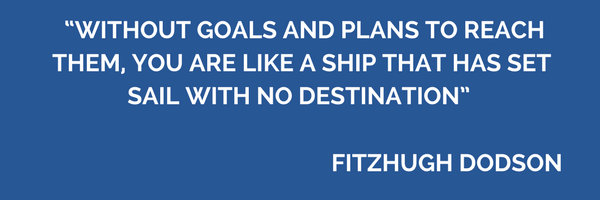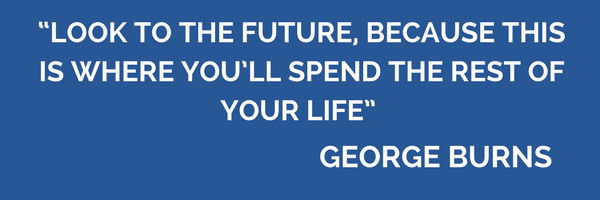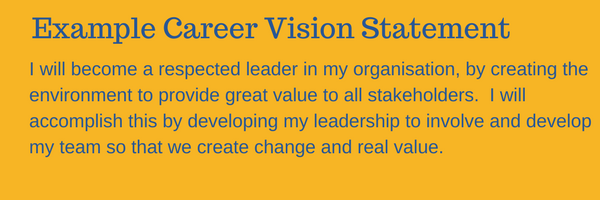
Many people make New Year Resolutions. It’s the New Year, so of course we do! However, it could be argued that the post-Christmas period is not when we’re most creative.
Thankfully, reviewing where we are and what we want is not exclusive to the New Year. Holidays can be a great time to do some serious thinking about what you want from your career. On your holiday, you have time (often a rare commodity), you are relaxed and so can create an opportunity to do some creative ‘dreaming’.
1. Why do it?

As we’re all going to be working longer we’re likely to have several ‘careers’ during our working life. This means that career visioning and planning becomes increasingly important to help navigate a lifelong career with a sense of achievement and happiness.
Also, deciding what you want to achieve frankly means that you are more likely to achieve it. Once you know what you want, you can focus on the actions that will move you forward to achieving your desired outcome. “Without goals and plans to reach them, you are like a ship that has set sail with no destination” Fitzhugh Dodson
So, if you’re going on holiday and might like to think about your career then here are some thought starters for you. You don’t have to complete it all in one go; you can come back to it and even finish it when you get home …but get started by using your holiday to dream and visualise your future.
2. What is your Career Vision?
A career vision is a picture or statement of what you want to achieve in your career. It might include what you want to do, the impact that you want to make or the level you aspire to operate at. The more you can articulate what you want the better.
“Look to the future, because this is where you’ll spend the rest of your life” George Burns
Some people find ‘dreaming’ and thinking of possibilities comes naturally. For others, it is an under developed skill, so here are some questions to prompt your thinking. It’s not an exhaustive list, but look through and answer those which appeal to you:
- If there was nothing standing in your way, what would you most want to achieve in your career?
- What would your dream job contain?
- If you had no financial worries what would you choose to do?
 How do you define career success?
How do you define career success? - Think of someone you admire. What is it about them or their career that attracts you? Does it reflect something that you’d like in your career?
- What would you like your obituary to say about your career and the impact you had on people?
- What level would you want to operate at? What is your desired level of responsibility?
- Who would you be working with?
- Which of your current strengths and skills must your future career contain?
- What makes you happy? What makes you energised?
- What activity do you love? Is it part of your career currently and if not, how could you incorporate it?
3. What else can help me dream?
Here’s some tips to help you as you dream:
- Create suitable space: it takes time and you need to be free of distractions and interruptions to get your creative dreaming juices flowing.
- Keep at it: it might not come easily to you, persevere and come back to it and take several bites at the vision cherry.
- Be positive: it allows you to consider all possibilities. The negative voice of ‘that won’t work’ or ‘I couldn’t do that’ must be suspended for this exercise…. this is dreaming and visioning – anything is possible.
- Write it down: have a pen and paper or some other means to capture your thoughts and musings. You may not remember it otherwise.
- Change: What’s happening today isn’t what has to happen in the future so allow yourself to consider all options.

4. What makes a career vision statement?
Eventually you will have a better understanding of what is important to you and you can pull it all together into a short career vision statement including What you want to achieve and How you might achieve it.
5. How do I make it all happen?
To make your vision become a reality you will need to develop career goals and then short and longer-term action plans to deliver your goals. Write your goals as specific as possible and make them SMART as it applies to career objectives too. “A goal is dream with a plan and a deadline” Harvey Mackay.
It is important to remember that regularly thinking about what you want to achieve in your career is relevant whether you are happy in your current career, role and company or desperate for change. The process opens you to possibilities; to moving forward and to achieving what will make you happy. I think there is an argument for making ‘dreaming’ part of every holiday.

Jackie Wilks is an Executive Coach based in Hertfordshire. She travels to support her clients with a range of work based challenges and opportunities. She can be contacted at [email protected] or by calling 07984 131604.




